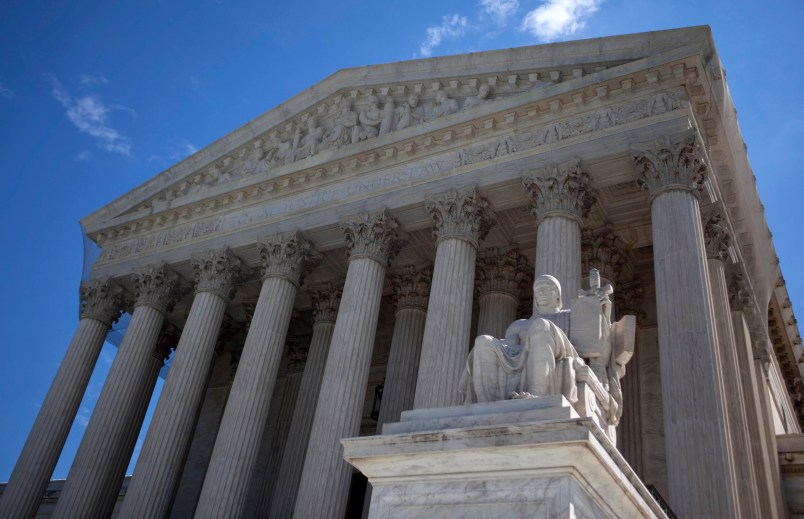WASHINGTON (AP) — The Supreme Court on Monday turned away a challenge to Wisconsin’s voter identification law, after having blocked the state from requiring photo IDs in November’s general election.
The justices’ action means the state is free to impose the voter ID requirement in future elections, and is further evidence that the court put the law on hold last year only because the election was close at hand and absentee ballots already had been mailed with no notification of the need to present photo IDs.
The court did not comment on its order.
Wisconsin was one of four states in which a dispute over voting rules reached the Supreme Court last fall. The other states were North Carolina, Ohio and Texas. Of the four states, only Wisconsin’s new rules were blocked.
Wisconsin’s photo ID law has been a political flashpoint since Republican legislators passed it in 2011. The GOP argues the mandate is a common sense step toward reducing election fraud. Democrats maintain no widespread fraud exists and that the law is really an attempt to keep Democratic constituents who may lack ID, such as the poor, minorities and the elderly, from voting.
The law was in effect for the February 2012 primary but subsequent legal challenges put it on hold and it hasn’t been in place for any election since.
The ACLU and allied groups persuaded a federal judge in Milwaukee to declare the law unconstitutional last year. But the 7th U.S. Circuit Court of Appeals in Chicago later ruled that the law did not violate the Constitution.
The Supreme Court refused to disturb that ruling on Monday.
Copyright 2015 The Associated Press. All rights reserved. This material may not be published, broadcast, rewritten or redistributed.







One day poor minorities so far removed from mainstream life they lack a photo ID will realize they’re not supposed to participate in elections. Next on various state’s agenda: Devising onerous, expensive, byzantine, Kafkaesque policies for obtaining a photo ID. Which SCOTUS will dutifully rule are perfectly common sense and legal.
The Supreme Court ruling is an endorsement of voter suppression.
Drip, drip, drip.
Seriously, our efforts from here forward should be to fund all well-trained groups to do true direct outreach–going to the homes if necessary–to educate all eligible voters (within target groups, of course, home-bound, shut-ins, low-income, single-parent, etc.) about the voting laws of said state and to get them properly registered and ID’d. There also needs to be a strong effort from within each state to petition the state to allow certain voter outreach groups to be state-certified to properly ID the person, etc. (take pictures, process them through the DMV, whatever agency, etc.).
Seriously, it appears these are the laws of the land – utilize them in our favor. It may take a cycle to really get ramped up, but if the efforts are targeted to all poor people properly–and well-funded–the results should show up the following two year-cycle. Don’t waste anymore time fighting what is already lost. I’ve already started chatting up some of the very people I’m talking about here in my own building of low-income people.
“common sense step toward reducing election fraud” also a common sense step (at least to the GOP) toward requiring government ID cards, basically SS with pictures, what better way to control the people, or discriminate, or suppress. It all comes to trickle down effects, for this “smaller non-invasive government” political party.
Still more proof that there was no difference between Bush and Gore.